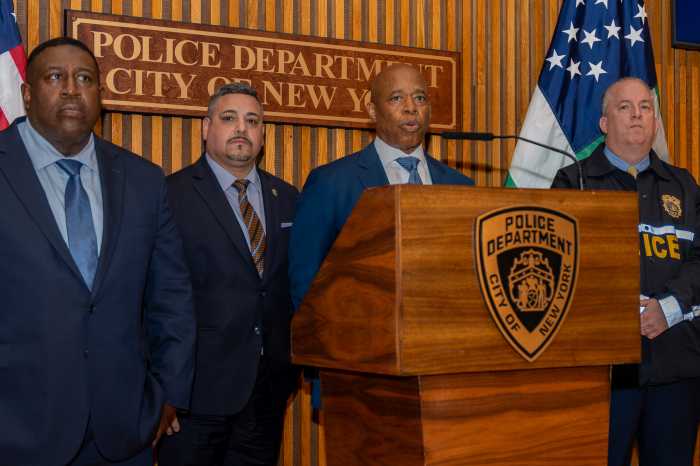BY SOPHIA ROSENBAUM
Dimitris Velitsianos couldn’t find work in his Greek homeland, so he left to seek a better life in Queens.
“I don’t think things are going to get better in Greece soon,” said Velitsianos, 20, a full-time student at John Jay College and a part-time waiter at Agnanti. “I don’t see any future in Greece.”
Four decades ago, a political coup brought thousands of Greeks to Astoria. Now, a failing economy that’s more than $400 billion in debt is fueling a recent wave of immigration.
Numbers are hard to come by, but the signs of a Greek surge in Astoria are everywhere: Enrollment numbers are up at the local Greek-American elementary school. Greek restaurants are flooded with job applications. A local nonprofit immigration center has seen a 25 to 50 percent increase in recently arrived Greeks.
“People tend to gravitate where they feel comfortable,” said Antonio Meloni, the executive director of immigration advocacy services at the Immigration Outreach Center on Steinway Street.
Astoria’s Greek population peaked in the 1970s – with about 250,000 Greeks arriving between 1965 and 1980. But the area has since turned into a mosaic of cultures, said Nicholas Alexiou, a professor at Queens College who studies the Greek conflict and Greek-American life.
For many Greeks, smells of pungent olives, sharp feta and savory lamb at authentic restaurants in Astoria are reminders of their homeland.
Lifelong Astoria resident Fay Lanbrianidis, 29, recently opened a café across the street from Agnanti, her parent’s restaurant, which has seen an increase in job seekers from Greece.
“Within the past three months, people just walk into the restaurant asking for a job,” she said. “We could say a good three to four per day that are coming in to ask for jobs.”
Betsy Sideris, assistant principal of St. Demetrios Elementary in Astoria, said the spike in Greek students has gone from three to 15 students this school year.
Sideris said in the past, the Greek government funded teachers from Greece for three-year teaching stints, but discontinued that program this year.
“The loss of the Greek government’s assistance added $250,000 to our budget to pay teachers’ salaries,” Sideris said.
While Panourgia acknowledged Greeks gravitate to Astoria because of the tight-knit community, she added that this same sense of community is what is keeping many others in Greece.
“Things are desperate in Greece,” she said. “But there is a real commitment to the country.”
The people feeling the biggest squeeze by the current crisis are the old and young, as programs get slashed and new opportunities dwindle, said Anthanasios Aronis, the president of the culture committee at the Federation of Hellenic Societies.
Like Sideris, Aronis gets calls from young professionals desperate to leave Greece and come to America. But, Aronis said, the reality is that these educated workers wind up getting jobs as waiters and cashiers.
“These people that are hurting right now are college graduates and it’s very difficult for them to come here and be a waiter,” he said.
While many Greeks are headed towards America, Lanbrianidis and Panourgia still dream of one day living in Greece.
“It’s actually one of my big dreams because the quality of life is ridiculous,” Lanbrianidis said. “You won’t get that quality of life here, unless you’re super rich.”
RECOMMENDED STORIES
- Pols rally against extremist Greek group, Golden Dawn
- Cavo: A Gem in Astoria
- Pol hopes new legislation will make it tricky for bikini bars to get liquor licenses































